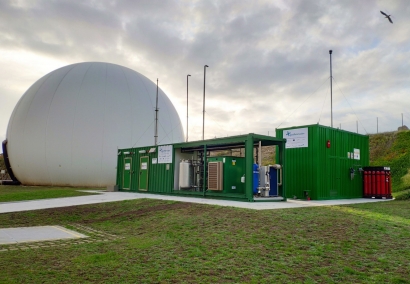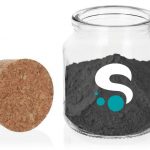When operating a biogas plant, it is very important to know what the different variables are that allow increasing biogas production. From Smallops we want to show you some of the existing possibilities. We also want to let you know about the developments we are carrying out so that you can increase your biogas production.
We are going to start this blog commenting that biogas is a combustible gas formed from the decomposition of organic matter (biomass), through the action of certain microorganisms. Biogas is composed of 50-75% methane (CH4), this being the compound that gives it the highest energy value. In the same way, it is a way to value your waste and also to be able to generate green energy for self-consumption, use it as biofuel by injecting it into the gas network or compressing or liquefying it for use as biofuel in the automotive industry. In addition, the production of biogas helps us to achieve the EU decarbonisation objectives and the National Integrated Energy and Climate Plan. It is for this reason that the administration has already released the biogas roadmap and the PERTE for renewable energies, renewable hydrogen and storage.
Having said this, it is important for anyone who has incorporated biogas as a waste management route that the key is to achieve sufficient gas performance. For this reason, many times the main question is how to increase biogas production. For that, it is necessary to know what are the main factors that help to have a more efficient biogas production.
The factors that help to have a more efficient biogas production are:
- Substrate type (available nutrients);
- Digester temperature;
- The volumetric load;
- Hydraulic retention time;
- Acidity level (pH);
- Carbon Nitrogen Relation;
- Substrate concentration;
- The addition of inoculants;
- Degree of mixing;
- Presence of process-inhibiting compounds;
Learn how to increase biogas production
Currently, there are many companies on the market dedicated to increasing the production of biogas and biomethane. The problem with these companies is that they usually advise buying additional equipment to increase biogas production. These purchases represent a large investment, and if not, they recommend that you modify the substrate so that you are not solely dependent on your own substrates.
At Smallops, knowing that all the problems mentioned above, we developed an additive. This additive is used to increase the production of biogas and is carbon-encapsulated iron nanoparticles, called OPS. The OPS help increase biogas production, acting directly on the biogas digester itself, without altering the current process for obtaining this renewable energy, and without using other substrates. The main advantages are:
- Improve the production of methane (CH4) by 20%.
- Reduce production costs to the same extent as increasing biogas production.
- Elimination of hydrogen sulfide gas by up to 99%, extending the useful life of cogeneration engines.
- Increase the degradation of phytotoxic compounds such as polyphenols by 24%.
- The resulting digestate would be of greater interest and viability when applied to soils due to the higher content of iron and sulfur (essential nutrients for plants) and its lower contaminant load, which is an added value that would otherwise increase the profitability of the process.
- They provide greater stability to the biogas production process, which favors this sector towards the establishment of biogas as a reliable energy source. All this because biogas production would be more constant and homogeneous, as well as being of higher quality and maximizing its production.
All this with the same product!
¡CONTACT US!
If you are looking for a profitable, efficient and sustainable way to improve biogas production, do not hesitate to contact us. We will solve all your doubts and we will provide you with all the information you need!




